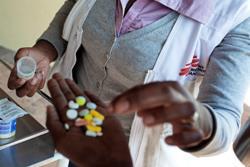Home birth risky without professional assistance

While most pregnant women who choose to have planned home births deliver without complications, research suggests that home births have more risks than hospital births.
Sindi Mogale from Bushbuckridge lost her twins during a home birth.
“I lost a lot of blood and was rushed to the hospital. This practice is still happening – especially in rural communities – because of cultural beliefs and the fact that there are no campaigns to educate communities about the risk of home births,” she said.
Supervision
Department of Health spokesperson Dumisani Malamule said health education and community dialogues were being conducted on the importance of delivery under the supervision of a health worker.
Sonto Lubisi from kaMsogwaba said she preferred giving birth at home after a negative experience when she had her first child in hospital. “The nurses vow to serve the community with dignity and respect, but I almost lost my newborn because they were busy gossiping and drinking tea and I had to deliver my baby alone.”
Community elder Elizabeth Zulu said while culture is very important, women who want to deliver a baby at home should make sure they are helped by someone who is properly trained. “Don’t put your life and your newborn’s life at risk; so rather go to hospital or clinic if there’s no trained midwife,” she said.
An edited version of this story was published by Health24.
Author
Republish this article
This work is licensed under a Creative Commons Attribution-NoDerivatives 4.0 International License.
Unless otherwise noted, you can republish our articles for free under a Creative Commons license. Here’s what you need to know:
You have to credit Health-e News. In the byline, we prefer “Author Name, Publication.” At the top of the text of your story, include a line that reads: “This story was originally published by Health-e News.” You must link the word “Health-e News” to the original URL of the story.
You must include all of the links from our story, including our newsletter sign up link.
If you use canonical metadata, please use the Health-e News URL. For more information about canonical metadata, click here.
You can’t edit our material, except to reflect relative changes in time, location and editorial style. (For example, “yesterday” can be changed to “last week”)
You have no rights to sell, license, syndicate, or otherwise represent yourself as the authorized owner of our material to any third parties. This means that you cannot actively publish or submit our work for syndication to third party platforms or apps like Apple News or Google News. Health-e News understands that publishers cannot fully control when certain third parties automatically summarise or crawl content from publishers’ own sites.
You can’t republish our material wholesale, or automatically; you need to select stories to be republished individually.
If you share republished stories on social media, we’d appreciate being tagged in your posts. You can find us on Twitter @HealthENews, Instagram @healthenews, and Facebook Health-e News Service.
You can grab HTML code for our stories easily. Click on the Creative Commons logo on our stories. You’ll find it with the other share buttons.
If you have any other questions, contact info@health-e.org.za.
Home birth risky without professional assistance
by cynthiamaseko, Health-e News
October 31, 2018



